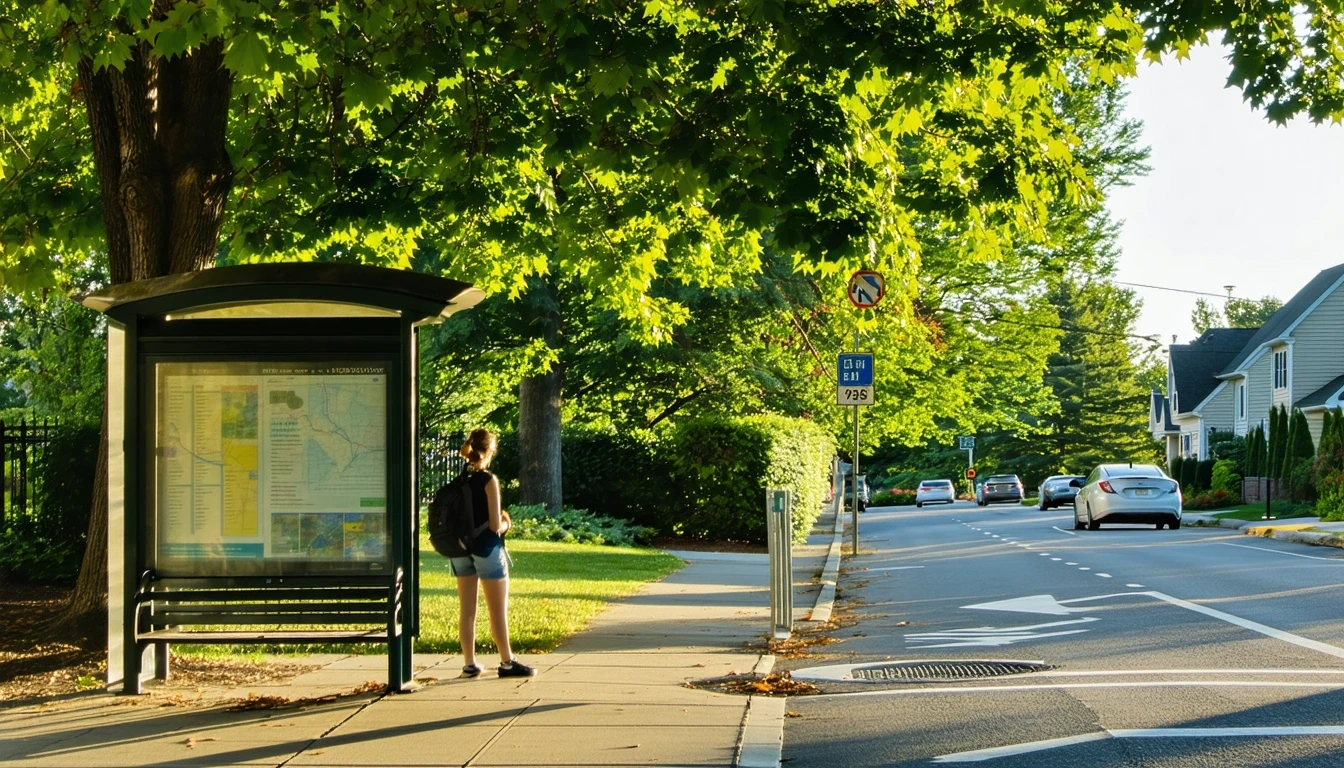
What You’ll Spend on Transit in Fairfax
Do you really need a car to get around Fairfax? With a cost of living index of 152.4, overall expenses in Fairfax trend above the U.S. average, which often extends to monthly budgets for transit and commuting. A standard bus fare in Fairfax typically costs $2.00 per ride. For frequent riders, a 30-day pass with Fairfax Connector runs $70.00.
In many U.S. suburbs like Fairfax, a monthly transit pass ranges between $60–$100 depending on coverage. While public transportation costs in Fairfax align with regional norms, the convenience and affordability compared to car ownership varies by neighborhood and commuting needs.
Transit Options in Fairfax County
Fairfax County offers several public transit services connecting residents across the region:
- Fairfax Connector operates over 90 bus routes, including express commuter buses to DC
- Metrobus provides additional regional bus service
- Metrorail’s Orange, Blue, and Yellow lines serve parts of Fairfax County
- Virginia Railway Express (VRE) commuter trains connect Fairfax to Union Station in DC
While Fairfax has some Metrorail stations on the edges of the county, most neighborhoods rely primarily on bus service. Express park & ride lots help commuters connect to regional rail lines heading into the city.
Monthly Cost Breakdown
How much will you really spend on public transit each month in Fairfax? It depends on your riding habits:
| Rider Profile | Estimated Monthly Cost |
|---|---|
| Occasional (8 round trips) | $32 |
| Weekend only (8 round trips) | $32 |
| Daily commuter (22 round trips) | $70 (with monthly pass) |
Estimates reflect 2025 fares for standard adult riders. Actual costs may vary depending on discounts, pass types, and commuting frequency.
Is Public Transit Worth It in Fairfax?
With gas prices around $3.10/gallon in Fairfax, even a modest transit commute can be cheaper than driving daily, especially when factoring in parking. The average bus commute in Fairfax takes about 35 minutes one-way.
However, service frequency and coverage varies significantly by neighborhood. In denser areas near DC, public transit is often faster than battling rush hour traffic. But in more spread-out suburbs, limited bus routes and infrequent schedules can make transit less practical than driving.
Fairfax’s walkability also impacts the convenience of public transportation. While some town centers are pedestrian-friendly, many neighborhoods have limited sidewalks and crosswalks, making it harder to access bus stops without a car.
Ways to Save on Transit
Fortunately, there are several ways to keep your monthly transportation costs in check:
- Purchase a monthly pass if you ride regularly – you’ll save up to 50% compared to paying per ride
- Check if you qualify for discounted fares as a student, senior, or person with disabilities
- See if your employer offers subsidized passes or pre-tax transit benefits
- Take advantage of free transfers between Connector, Metrobus, and Metrorail
🏆 Tip: In Fairfax, using a 7-day bus pass ($17.50) instead of paying daily fares can save commuters over 30% if riding all week.
FAQs About Transit in Fairfax
What is the cheapest way to get around Fairfax?
For occasional trips, paying per ride is the most economical option at $2.00 per bus trip. But if you take transit regularly, a monthly Fairfax Connector pass ($70) provides the best value and savings.
How does the cost of public transportation in Fairfax compare to driving?
Riding transit in Fairfax is often cheaper than the gas and parking costs of driving alone, especially for commutes into DC. However, the time and convenience trade-offs depend on your specific neighborhood and route.
Are there monthly or annual transit passes available in Fairfax?
Yes, Fairfax Connector offers a 30-day pass for $70 that provides unlimited rides on all Connector buses. 7-day ($17.50) and 1-day ($5) passes are also available.
Does Fairfax offer park-and-ride or express bus options for commuters?
Fairfax Connector runs several express routes from various park & ride lots in the county, providing direct rush hour service to major transit hubs and job centers. Metrobus also operates some commuter routes.
What mobile apps or tools make it easier to plan trips on Fairfax transit?
The Fairfax Connector BusTracker app provides real-time bus arrivals, trip planning, and mobile fare payment. The SmarTrip app also allows riders to manage their transit card and add value from their phone.
Getting Around Smarter in Fairfax
With some planning, using public transportation in Fairfax can be an affordable alternative to driving. If you’re a daily commuter, budget $70-100 per month for transit passes. Occasional riders can get by with less than $40 in fares each month.
Of course, the practicality of transit varies based on where you live and work. Consult Fairfax Connector’s system map to gauge the service near you. When deciding whether to ditch your car, also consider the broader cost of living in your specific neighborhood, including housing and transportation trade-offs.
Wherever you land, a little research into Fairfax’s transit options can help you get around more efficiently. With the right route planning and fare strategy, you can keep your commuting costs in check while avoiding the headaches of traffic and parking.
